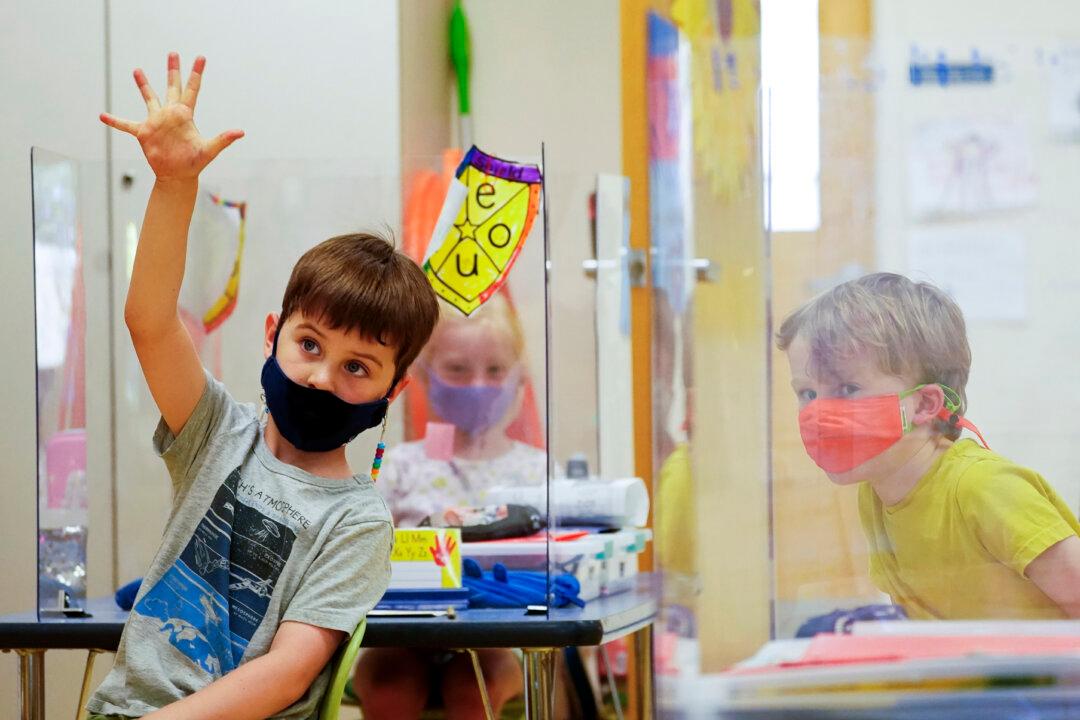The American Academy of Pediatrics (AAP) says that parents do not need to be concerned about their child’s social development, claiming that masking has no negative impact on speech or language development.
“Babies and young children study faces, so you may worry that having masked caregivers would harm children’s language development. There are no studies to support this concern. Young children will use other clues like gestures and tone of voice,” the medical organization said in a series of tweets on Aug. 12.






